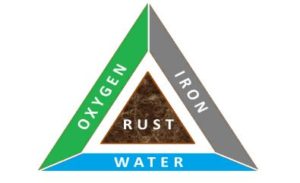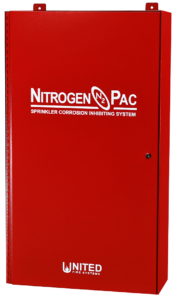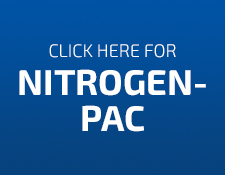About Corrosion
What is corrosion?
Corrosion is best defined as the natural process by which materials are gradually destroyed by chemical reaction with its environment.
Is corrosion a problem?
Very definitely. Corrosion happens all around us, all the time. The negative effects of corrosion can be costly. One study estimated the annual negative impact of corrosion in the United States alone to be close to $300 billion per year—over 3% of the U.S. gross domestic product.
What makes corrosion happen?
Corrosion is inevitable when only three basic elements are brought together. These elements are:
- A material susceptible to corrosion—iron is a prime example.
- A substance to chemically combine with the susceptible material—oxygen is the most common.
- Something that drives or accelerates the chemical reaction—such as water.

To learn more, reach out to us online or give us a call at 908.688.0300.
How is this relevant to my sprinkler system?
In several very important ways:
- The inside of your sprinkler pipe is ideal for corrosion to occur. All three elements are present:
- Iron is the major component of steel pipe.
- Oxygen makes up about 21% of air and using pressurized air only multiplies the presence of this element.
- Water will always be present from required testing and from moist pressurized air.
- Your pipe’s strength and ability to handle water pressure will degrade over time from pipe wall thinning, pits, and pinholes. Actuation of the system—whether deliberately or accidentally—can lead to drips, major leaks, or even burst pipes causing large amounts of water damage.
- You can’t see this happening, since it occurs from the inside out. Don’t be fooled when the outside of the pipe looks just fine. It is the hidden deterioration that matters.
- The lifespan of your system may be greatly reduced. Overhaul—or even complete replacement—of the system piping may be needed after only a few years of deterioration. Major work such as this will significantly impact your business, as workers disassemble other equipment that is in the way, take apart and replace pipe around and above your operation, and seriously impede personnel access in your building. And, don’t expect the overhaul or replacement to be the same cost as the initial installation. The complexity of working in an operational facility is far greater than when things are wide open during construction. Expect to spend about 3 times of the initial system cost just to have things set right.
What can I do about this?
Removal of just one of the three elements of the corrosion triangle will almost completely stop this process, and lengthen the lifespan of your system. Let’s take a look:
- Can we take away the iron? Alternative pipe materials are incredibly expensive, and if you have an existing system, then the iron (in the steel) must stay.
- Can we take away the water? Not without a lot of trouble and expense to pitch the pipe, install low-point drains, and greatly increase the cost of periodic inspection and service. There may even be pipe that is difficult or impossible to drain, such as drop nipples to sprinkler heads.
- Can we take away the oxygen? In a word, yes! Using an inert gas to pressurize the system will almost completely stop the corrosion triangle and is a practical and cost-effective way to solve this problem.
Where do I get this inert gas?
The answer is all around you. The air we breathe is actually 78% nitrogen—a substance with no ability to cause corrosion. If we use nitrogen to replace the oxygen inside the pipe, corrosion will practically be stopped in its tracks.
Of course, we must efficiently and effectively extract this nitrogen from the air. That’s where UNITED Fire Systems NITROGEN-PAC technology comes in. Our nitrogen generating systems use ordinary air as the raw material to create 98% nitrogen under pressure—when the regular pressurized air is purged and replaced with the output from a NITROGEN-PAC, continued corrosion is a thing of the past.
Okay, what’s the bottom line?
The bottom line for you is extending the lifetime of your preaction or dry-pipe sprinkler system piping from perhaps 5 years to around 35 years! That’s obviously a significant deferring of that troublesome and costly system overhaul or replacement that was mentioned earlier.
What’s the next step?
UNITED Fire Systems is ready to help you make the decision to deploy the best technology.
Click above for more information on the products that will virtually stop your corrosion, extend your sprinkler pipe’s life, and help your bottom line. Contact us online or give us a call at 908.688.0300 and we’ll help you make the best choice.

